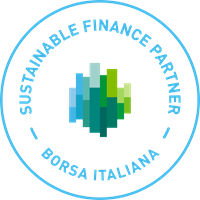In the ever-changing corporate landscape, awareness of ESG (Environmental, Social and Governance) criteria is more crucial than ever for companies aiming for a sustainable and profitable future.
But how can companies assess and improve their impact in these areas?
Let’s find out together.
Measuring sustainability: the tools
An essential factor in the sustainable strategy is the monitoring and verification of business processes, a context in which tools such as the Sustainability Report and ESG Assessment, aimed at measuring the business impact and daily operations in terms of sustainability, are placed.
Monitoring and auditing business processes, and the impact they have on the environment, enables companies to assess their performance from a sustainable and integrated perspective. What this means.
It means evaluating the processes of the entire business organization from an ESG (Environmental, Social and Governance) perspective, measuring the impact that business activities have on both the environment and society.
Understanding the importance of tools such as the ESG Assessment and the Sustainability Report is key to defining long-term sustainable strategies and goals by analyzing and defining the baseline.
The ESG Assessment in Investor Relations.
The ESG Assessment is an assessment tool that analyzes a company’s performance against environmental, social, and governance criteria.
The goal is to assess how the company manages and addresses issues related to sustainability and corporate social responsibility.
Through a thorough ESG Assessment, a company can demonstrate to investors its commitment to the path of sustainable and responsible growth, increasing its value.
An increase that in turn generates greater competitiveness in the marketplace relative to competitors.
In addition to reputational benefits, the ESG Assessment brings a number of essential benefits to the company, including:
- More efficient risk management, because it is a useful tool for identifying existing gaps and actions to be implemented, with a view to protecting the company from possible future negative impacts;
- An increase in operational efficiency, resulting from the identification of waste and inefficiencies.
Correcting these problems reduces environmental impact and leads to significant cost savings, improving overall operational efficiency; - Employee engagement and motivation.
Through strategies to analyze and improve corporate culture, employees are found to be more motivated and contribute concretely to supporting and promoting sustainable actions and values in the company.
In a world where sustainability is at the center of business decisions, the ESG Assessment is a key tool for guiding companies toward ethically and socially responsible growth.
Sustainability reporting: what it is and why it is important
- Waste reduction;
- Promotion of social responsibility within the company.
Sustainability reporting and evaluation standards
Tools for measuring and verifying business processes from a sustainable perspective, such as the Sustainability Report, are prepared according to standards and guidelines set by International Bodies.
Among the most important standards and references, in light of which to evaluate the results present in a Sustainability Report, are:
- The Global Reporting Initiative (GRI) standards: one of the most widely used standards for sustainability performance reporting.
The guidelines of the Global Reporting Initiative, the international body that prepared the GRI standards, provide a comprehensive framework for corporate sustainability reporting, covering economic, environmental and social aspects; - Sustainability Accounting Standards Boards (SASB) criteria: standards set by the international nonprofit organization Sustainability Accounting Standards Board, identify ESG factors related to each individual industry or business subsector to which they relate;
- The recommendations of the Task Force on Climate-related Financial Disclosures (TCFD): the TCFD focuses on climate-related financial disclosures.
Its recommendations focus on how companies should disclose news related to climate change and associated risks; - ISO 26000: provides guidelines on social responsibility and sustainability, offering a general framework for companies that want to integrate sustainability into their business practices;
- The Carbon Disclosure Project (CDP): requires companies to disclose information about their carbon footprint and strategies to address climate-related risks.
The international standards provide a guideline for stakeholders and investors in assessing the results of the Sustainability Report, and are a corollary of principles applicable to all corporate entities.
Measuring and communicating sustainability to enhance corporate value
The promotion of sustainability and the practical application of ESG criteria include monitoring, measuring, and reporting the impact that business processes have on the environment, society, and internal governance.
The ESG Assessment and the Sustainability Report allow the company’s performance to be measured and evaluated from both environmental and social perspectives.
Both are part of a strategy to increase corporate value and create value for the community in which the company is embedded.
Adopting sustainable strategies, promoting a socially responsible corporate culture, and innovating the way we do business represent concrete commitments to lasting growth.
Learn about Tecno’s sustainability solutions for investigating and reporting on your company’s sustainability performance.


